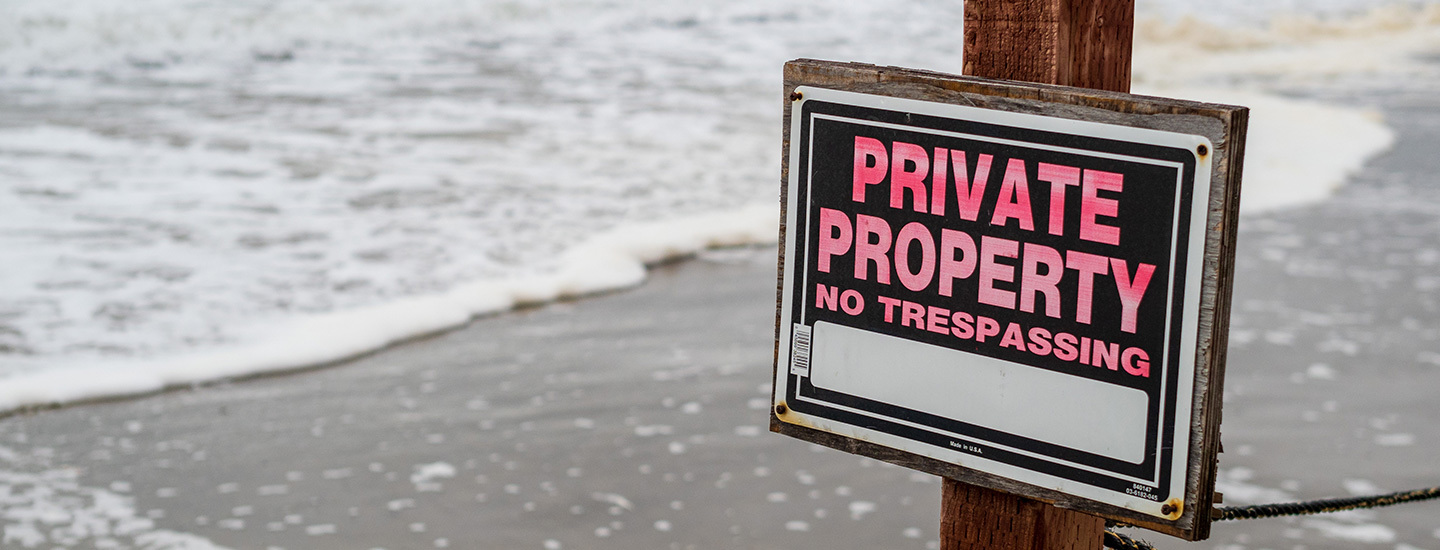
The Surfrider Foundation has filed an amicus curiae (“friend of the court”) brief in support of the California Coastal Commission’s authority to levy fines on beachfront property owners who block the public’s right to access the beach.
Since 2007, beachfront homeowners in Malibu, the Lents, have sought to illegally block the public from accessing Las Flores Beach by keeping a private gate where a public accessway should be. In 2016, the California Coastal Commission levied a 4.1 million dollar fine against the Lents for blocking public access. The Lents subsequently sued the Coastal Commission, challenging the fine and the statute authorizing it. In 2018, the Los Angeles County Superior Court found that the evidence presented supported the Coastal Commission’s decision to impose a fine.
The Lents are now appealing the Superior Court judgment and the fine.
California state law has long protected public access to the shoreline below the mean high tide line under the public trust doctrine. In addition to comprising a state constitutional right (enshrined in Cal. Const. art. X, § 4), public access is critical to social and environmental justice. In California, particularly in Los Angeles County, minority and low-income groups are drastically underrepresented in coastal communities. Living in coastal cities like Malibu has unfortunately become a privilege that is only available to certain groups, forcing others to travel and expend more effort to access the coast. On top of this, private property owners like the Lents further impede public access by putting up unauthorized private gates, or “no parking” and “no trespassing” signs.
In 2002, the City of Malibu Land Use Plan mandated that there be one vertical access easement every 1,000 feet along Las Flores Beach to ensure sufficient public access. But the property in question, which the Lents purchased the same year the Malibu Land Use Plan was adopted, has effectively closed off public access to the beach. Since 2007, the Lents have continually refused to remove their private gate. The next closest beach access points are at Big Rock Beach and Carbon Beach, located one mile and 1.7 miles away, respectively. By refusing to take down their gate—in violation of California law—the Lents have kept nearly 10 percent of Malibu’s 27-mile coastline off limits to the public.
Surfrider’s brief, filed July 15 with the California Court of Appeal, Second Appellate District, focused on Section 30821 of the California Coastal Act, a provision that allowed the Coastal Commission to impose its 4.1 million dollar fine on the Lents.
Section 30821 works to deter future public access violations, speeds up the resolution of access issues and allows the Coastal Commission to more effectively manage an increasing number of public access cases. Prior to 2014, the only way for the Coastal Commission to hold public access offenders accountable was by taking them to court. Then in July 2014, in an effort spearheaded by then-California Assembly Speaker Toni Atkins, the California Legislature amended the Coastal Act to add section 30821. However, instances where the Coastal Commission has imposed a fine on property owners are still extremely rare and used only as a last resort. Since the law was amended, the threat of financial punishment has been enough to stop offenders when they are caught physically blocking or intimidating visitors from accessing the coast. More than 90 percent of the public access cases resolved since 2014 have resulted in no fines at all, and fewer than two percent have resulted in a unilateral fine. Although the Coastal Commission has the authority to fine offenders, these fines are used only when absolutely necessary.
The Lents case exemplifies one such outlier. For the Lents, the benefits of non-compliance are substantial. The Lents’ property, which functions as a temporary vacation rental, has been advertised on VRBO.com for an average rate of $1,018 per night, $9,200 per week and $32,000 per month. The advertisement featured a “private beach” showing that the Lents directly profited from continuing to block public beach access. The Coastal Commission needed to impose a substantial penalty in order to get the Lents to comply with the law.
Surfrider’s brief offers support for section 30821 and the Coastal Commission’s authority to impose a fine on the Lents. The brief discusses how section 30821 is structured to only impose unilateral fines in egregious cases and as a last resort. The brief further discusses how in the Lents’ case, imposing a hefty fine was necessary and fair. The Lents have repeatedly violated California public access law and have directly benefited from doing so. On appeal, the Court for the Second Appellate District of California should uphold the judgment and the fine against the Lents. Surfrider and our co-amicus Azul were generously represented by the Mills Environmental Law Clinic at Stanford Law School.
